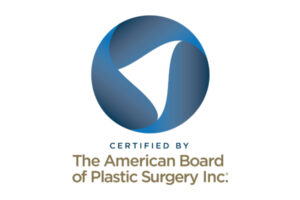Scarring is a part of almost any surgical procedure, but the appearance of scars varies significantly due to placement and your after-care treatment regimen.
I’ve released several videos regarding the treatment of scars after surgery, which you can view here, but scars after breast augmentation are different because of placement and how you should apply cream or ointment.
First, not all scar creams are created equal. Though the type of cream or ointment you use isn’t necessarily the most critical factor, it is essential to get something with silicon as an active ingredient because it will help with lubrication during application. The silicon works like a slick barrier between your finger and scar, making application easier because your finger slides without friction.
But it isn’t just about putting on a quick coating of cream. Like most things, the most effective method to reduce the appearance of scars takes a few minutes and requires a bit of technique and massage.

You’ll want to start by applying a healthy amount of ointment directly to your finger or scar. After you’ve coated generously so that your finger glides easily, you’ll want to gently massage your scar and the surrounding area with the ointment using circular motions. This practice ensures that the cream lubricant bonds to your entire scar, and the massage aids in circulation.
Once you’ve completed that step, you’ll want to continue applying the cream in a linear motion, from side to side over the top of your scar. If you have excess, smooth it around the area so that everything is covered evenly. The whole process should take about two minutes, and it should be something you do daily for an entire year.
By adopting this application method, you can reduce and possibly eliminate the appearance of scars altogether. You’ve already invested ample time and money in your body – why not spend the extra few minutes a day to make your results as perfect as possible.






